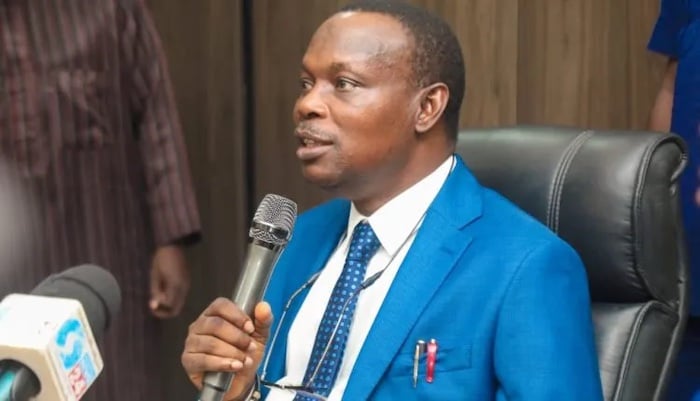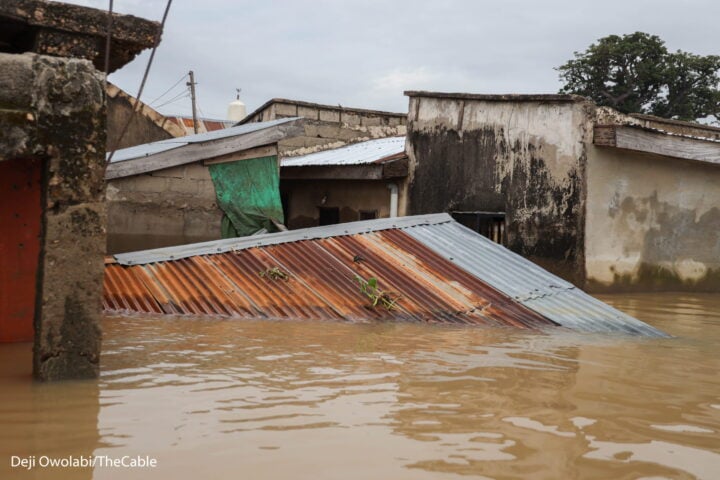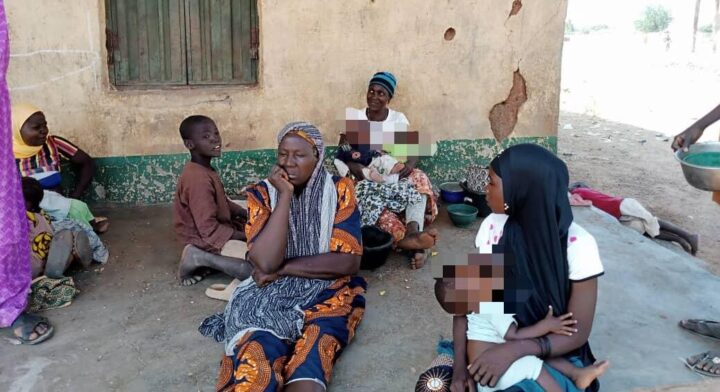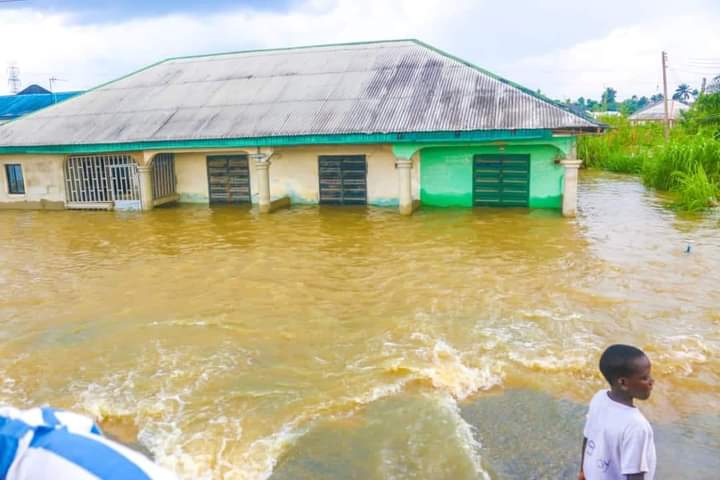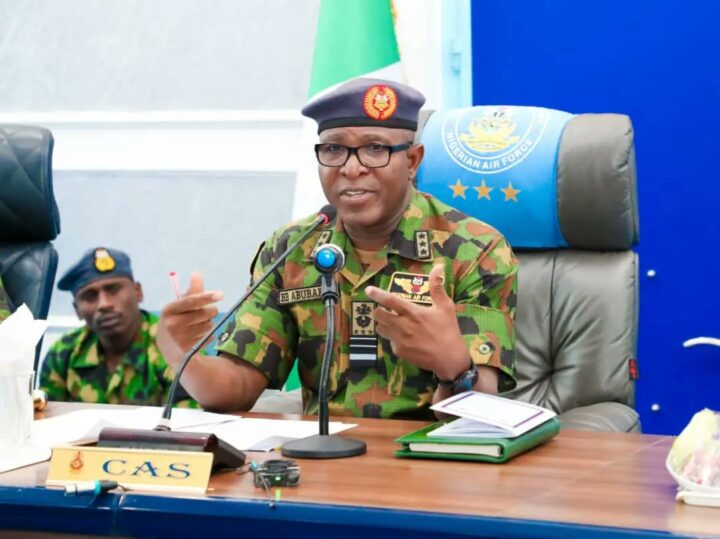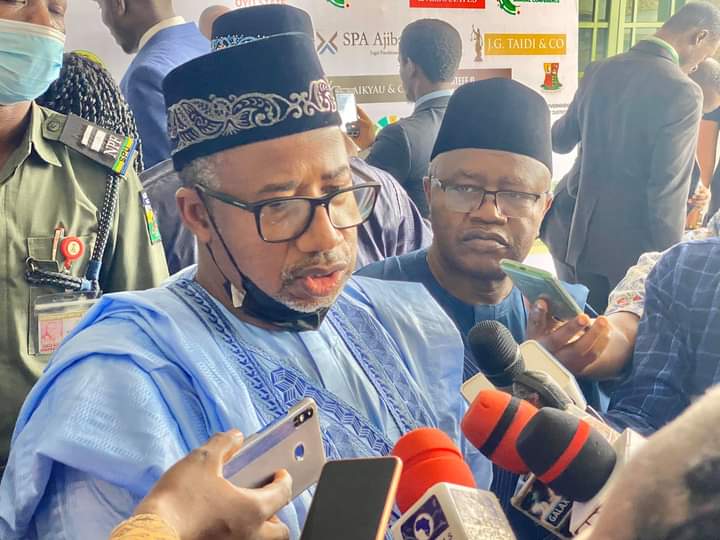Ishaq Salako, minister of state for health and social welfare
Despite directly impacting our communities, health, and livelihood, climate-related reports usually take a back seat to dominant news beats like politics and business. Climate Watch aims to ensure you never miss important stories on climate change and actions being taken toward limiting its impacts.
Here is a round-up of last week’s climate stories:
- Ishaq Salako, the minister of state for environment, says the federal government will create a national system of reverse logistics to allow plastics to return to the manufacturing companies. Speaking on Channels TV on Monday, Salako said waste products are “very useful”, adding that the new system will encourage plastic recycling and limit pollution.
- “We’re coming with a system where manufacturers of bottled water, for example, when they manufacture bottle, there is a logistic system that takes the bottled water from the manufacturer to the end user,” he said.
- “There should also be a logistics system — a reverse logistics system that takes that waste back without a break, through the manufacturer or people who will use those waste products because those waste products are very useful.
- “What we want to do is to create that kind of national system where there is a reverse logistics system.
- “As it comes back to you, it also goes back through another system. Those who transport bottled water from the factory to the end users, their vehicles go back empty. Why can’t we have a system, rather than going back empty, they go back with plastics?”
- The Abia state government has adopted private sector participation towards building a sustainable waste management system in the state. Oluebube Chukwu, senior special assistant to governor Alex Otti on due process, on August 26, said the inclusion of the private sector wasnto ensure an efficient waste management system and to create a healthier environment. Chukwu said the emergency task force created to handle waste disposal would cease to function for the private sector participants to take over. He said the process of engaging the private sector participants would be in phases, noting that the first phase was concluded on August 23. Chukwu urged residents of Abia to maintain an attitude of environmental cleanliness and support the government programmes to transform the state.
- The Taraba government on August 21, said 3,500 illegal miners have been arrested in Bali LGA of the state. Jeremiah Faransa, chairman of the task force on enforcement of the ban on illegal mining and deforestation, said the illegal miners were from different parts of Nigeria and other neighboring countries. Faransa said the abundant natural resources in the state which are meant to be harnessed for the benefit of the country and the citizens are being threatened by the activities of illegal miners. He said the suspects have been prosecuted by a mobile court and will be punished accordingly. Read more here.
- At a press conference on August 21, a group of civil society organisations (CSOs) asked African leaders to ignore false climate solutions proffered by developed countries. Mithika Mwenda, executive director of the Pan African Climate Justice Alliance (PACJA), said Africans are already suffering the adverse impacts of debts, global inequality, poverty and other challenges. Mwenda said carbon market initiatives which Africa is excited about are nothing but “greenwashing” used to mislead the public that products and policies are environment-friendly. He said the continent needs to pursue positive solutions like securing adequate and flexible finance for adaptation, loss and damage and mitigation actions. Find out more here.
- The World Health Organisation (WHO) on August 22, said weak health systems in developing countries are a major threat to their capacity to cope with the effects of climate change. Ishmael Nyasulu, the WHO representative, said climate change has the potential to undermine decades of progress in global health. Nyasulu said climate change is the single biggest threat facing humanity at the moment, adding that the WHO intends to build on its strong involvement in climate and health globally. Read more here.
- At the 23rd national council on women affairs held in Calabar, Cross River state, Sa’adatu Umar-Baba, a representative of the coalition of civil society organisations (CSOs), urged the federal government to prioritise climate adaptation over mitigation. Umar-Baba said funding for both adaptation and mitigation must increase if Africa is to make any significant progress. She asked the federal government to provide the needed national framework which will serve as a reference point for bringing together various adaptation plans from the different sectors of the economy. Read more here.
- Last week, over 400 environmental activists and human rights organisations asked China to stop funding fossil fuel projects in Africa. The CSOs gathered at Innisfree Park in Sandton, Johannesburg, to stage a protest targeting the Chinese delegation attending the BRICS summit. The demonstration was aimed at calling on China to immediately cease financing new fossil fuel and extractive projects that undermine global climate goals. They requested that China stay true to its commitment under the 2021 climate declaration with Africa. Find out more here.
- The Global Environment Facility (GEF) on August 24, launched the global biodiversity framework fund (GBFF) to accelerate investments in biodiversity and address nature loss. GBFF is designed to accelerate investments in the conservation and sustainability of wild species and ecosystems. Carlos Manuel Rodríguez, GEF CEO and chairperson, said the new fund will turn things around for the health of the planet and its people. Ahmed Hussen, Canada’s minister of international development, said the effects of nature loss are at their highest in developing countries. Hussen said Canada is committed to ensuring the protection of biodiversity by making significant contributions to the new fund and through cross-sectoral partnerships. Find out more here.
- Lekki Estate Residents and Stakeholders Association (LERSA), on August 24, asked the federal government to address the issue of ocean surges in the area. Communities such as Lafiaji, Owonikoko, Okun Ajah, Okun Alfa, Okun Mopo, and others are currently battling the challenge. Joseph Onoja, NCF director-general, said urgent steps must be taken to tackle the problem of erosion in Lekki. Onaja warned of devastating effects on many communities in the area if left unchecked, adding that the foundation is actively monitoring developments in coastal communities. Read more here.
Add a comment
